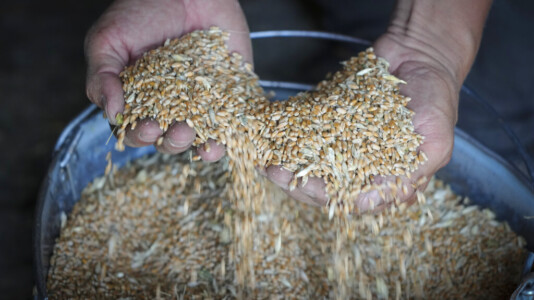As with most of the rest of Europe, the birth rate in Germany is crashing, with new data showing it is falling to its lowest level since 2009, with just 1.36 children per woman being born
The newly-released figures from the Federal Institute for Population Development show that a sharp drop in just a few years. In 2021, the rate was still 1.57 children per woman. The German institute produced its report in conjunction with Stockholm University.
Such a sharp “decline in fertility” within such a short period of time is “unusual,” the authors of the study explained, with “phases of declining fertility rates” being much slower to manifest and over a longer timeframe.
The Alternative for Germany (AfD) party released a statement in response to the plummeting birth rate, putting forward a number of policies the party argues will help reverse Germany’s demographic decline.
“The already far too low birth rate in Germany has fallen again: from 1.57 children per woman in 2021 to 1.36 children in autumn 2023. That the media immediately rush to blame the causes of this development on the Ukraine war or blaming other recent developments does not change the core problem: There is not the proper appreciation for families and children in our country – not politically, not financially and not socially.
Trying to ‘solve’ this problem with mass immigration in the social systems is completely the wrong approach. We want massive tax relief for families and a welcoming culture for our children. Specifically, this means: increasing the child allowance, introducing family tax splitting, complete tax deductibility of child-related expenses, lowering the VAT for children’s items to the reduced rate. In addition, we want to introduce a repayment of €20,000 for payments already made for pension contributions at the birth of each child.
The AfD also argues that it is not just more support for families and children but also the cost of housing, electricity and food, which have skyrocketed, that are discouraging family formation. Undoubtedly, areas such as housing have been an extreme burden for many Germans, with prices remaining elevated despite higher interest rates. The AfD argues that unnecessary fees and taxes need to be reduced and there needs to be a stop to the green energy “transition.”
While support for families is likely to be a winning policy proposal from the party, there is undoubtedly more to the picture, as many countries across Europe with generous social benefits for families are also seeing a crash in their birth rate.
The authors of the study argue that the vaccination campaign in January 2022 could have also contributed to the drop.
“It could be that many women, in view of the vaccines that were not approved for pregnant women at the time, postponed having children in order to be vaccinated first,” the study claimed. The study also cites inflation, the Ukraine war, and even climate change as potentially contributing factors.





